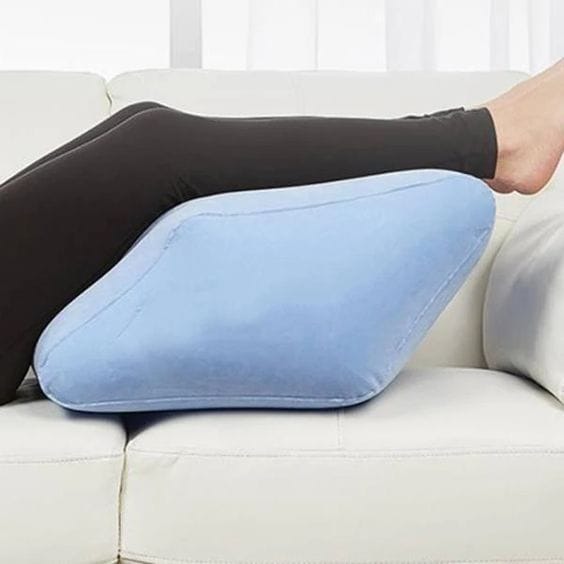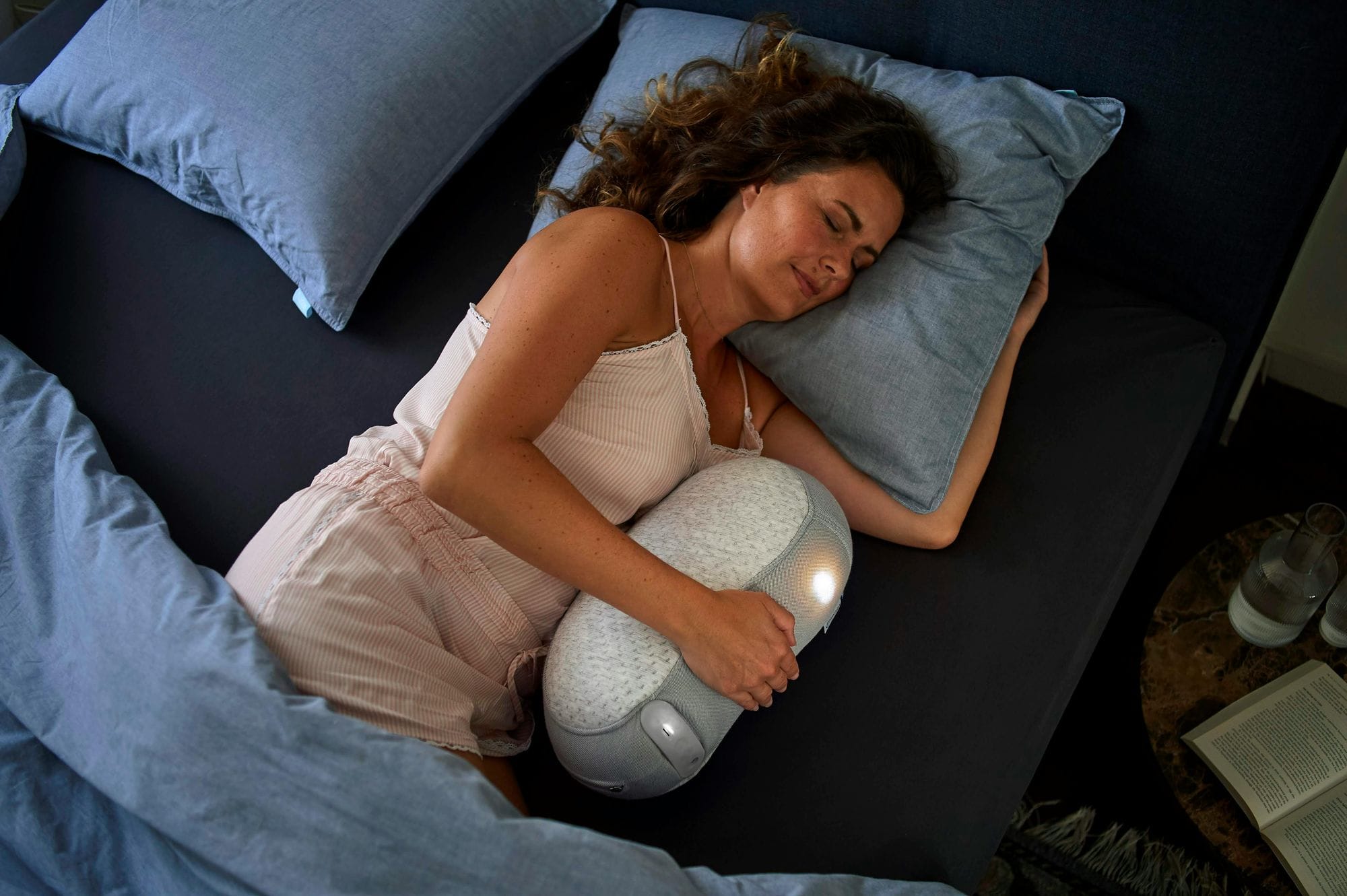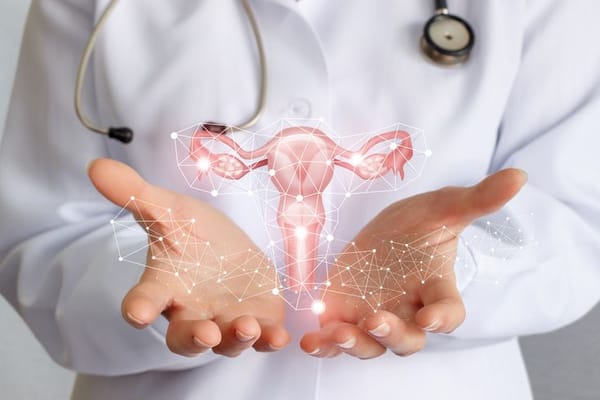Congrats on taking the exciting step of IUI! Now that the procedure is done, the two-week wait can feel like an eternity. While you might wonder what you can do to increase your chances of implantation, one often overlooked factor is sleep position. This article dives into the latest research on sleeping after IUI, offering tips to maximize your comfort and potentially boost your success rate. So, relax, grab your pillow, and get ready to learn how to optimize your sleep for the best possible outcome.
Why Sleep Position Matters?
Research on the impact of sleep position after IUI on success rates is still evolving. There's no definitive evidence that a specific position increases your chances of conception. Most of the time after insemination, it is usually sufficient to remain in bed for a few minutes to allow the sperm to enter your uterus more deeply.
Best Sleeping Positions After IUI
1) Elevated Hips: Immediately After Procedure (Optional)

Some clinics might recommend lying on your back with your hips elevated for 15-20 minutes immediately after the IUI procedure. This could be a way to ensure the sperm settles before you resume normal activities. The idea behind elevating your hips is that gravity might help sperm trickle down and stay within the uterus longer, potentially increasing the chances of fertilization. However, studies haven't shown a clear link between elevated hips and improved IUI success rates. Sperm are motile (they can swim) and reach the fallopian tubes within minutes after insemination, regardless of gravity.
2) Left Side Sleeping: Most Recommended

This position is generally considered the most beneficial. Studies suggest it may offer a few potential benefits after IUI:
- Improved Blood Flow: Lying on your left side alleviates pressure on the vena cava, the main vein returning blood to your heart. This enhanced circulation might also benefit blood flow to your reproductive organs.
- Enhanced Drainage: Sleeping on your left side may promote better drainage from your lymphatic system, which could help remove waste products and create a more favorable environment for implantation.
- Kidney Function: Some studies suggest left side sleeping may improve kidney function, which plays a vital role in overall health and potentially supports a healthy pregnancy.
3) Right Side Sleeping: For Comfort

If the left side of sleeping feels uncomfortable, don't force it! Right-side sleeping is perfectly acceptable, and prioritizing overall comfort is important for relaxation.
Tips for a Comfortable Sleep
1) Stay Relaxed
While sleep position might be a factor, it's important to manage expectations. Stress can negatively impact fertility, so focus on creating a relaxing bedtime routine. Take a warm bath, read a calming book, or practice light meditation.
2) Body Pillow

A pillow is always a very comfortable sleeping aid. Consider using a full or U-shaped body pillow to support your back, hips, and knees, promoting comfort in any side-sleeping position.
3) Maintain a Calm and Comfortable Sleeping Environment
A deep and comfortable sleep can be achieved in a quiet and calm setting. Thus, when you go to sleep, make sure everything is peaceful and unbroken.
Importance of Sleeping after IUI
After undergoing IUI, a good night's sleep becomes even more important. Here's why:
Overall Health and Wellbeing:
- Rest and Recuperation: IUI, like any medical procedure, can take a toll on your body. Adequate sleep allows your body to repair tissues, recharge energy reserves, and function optimally. This overall well-being is crucial for a healthy pregnancy.
- Stress Management: The two-week wait after IUI can be a rollercoaster of emotions. Sleep plays a vital role in regulating stress hormones like cortisol. Getting enough quality sleep can help you feel calmer and more positive throughout this waiting period.
- Hormonal Balance: Frequent, regular sleep increases the likelihood of successful implantation and helps sustain hormone levels.
Potential Benefits for Implantation (limited research):
- Improved Blood Flow: Some studies suggest sleep, particularly on your left side, might improve blood flow to the uterus and ovaries. This increased circulation could create a more favorable environment for a fertilized egg to implant in the uterine lining.
- Cellular Repair: During sleep, your body undergoes cellular repair processes at a deeper level. Healthy cell function is essential for overall health and could potentially support a developing embryo.
Post-IUI Care
Following an IUI procedure, taking care of yourself physically and emotionally is important. Here's a breakdown of key post-IUI care practices:
Physical Care:
- Rest: While bed rest isn't mandatory, prioritize getting enough sleep for overall well-being and stress management.
- Gentle Activities: Avoid strenuous exercise or heavy lifting for at least 24 hours. Light walks, yoga, or swimming can promote circulation and overall well-being without putting undue stress on your body.
- Hydration: Drink plenty of water throughout the day to stay hydrated and support bodily functions.
- Healthy Diet: Focus on a balanced diet rich in fruits, vegetables, and lean proteins to nourish your body.
- Postpone Sexual Activity: Avoid intercourse for at least 48 hours after IUI to minimize the risk of infection.
- Douching and Lubricants: Avoid douching or using vaginal lubricants for at least 48 hours to prevent disrupting the sperm environment.
- Minimize Harmful Substances: Limit or avoid alcohol, caffeine, and smoking, as these can potentially impact fertility.
Emotional Care:
- Manage Expectations: Understand that IUI success rates vary, and there's no guaranteed outcome.
- Reduce Stress: Engage in activities you find relaxing, such as meditation, spending time in nature, or connecting with loved ones.
- Join a Support Group: Connecting with others going through similar experiences can provide emotional support and valuable information.
FAQs
Question: How long should I lay down after an IUI?
Answer: The recommended amount of time to lay down after an IUI procedure is typically brief, around 15-20 minutes.
Question: Does sleeping position matter after IUI?
Answer: Research on the impact of sleep position on IUI success rates is ongoing. There's no definitive evidence that a specific position increases your chances of conception. However, some studies suggest potential benefits to sleeping on your left side, like improved blood flow to your reproductive organs and better kidney function, which could contribute to a more favorable environment for implantation.
Question: I heard about elevating my hips after IUI. Should I do that?
Answer: There's some debate about the effectiveness of elevating your hips. The theory is that gravity might help sperm stay within the uterus longer. However, studies haven't shown a clear link between this and improved IUI success rates. Some clinics might recommend lying on your back with elevated hips for 15-20 minutes immediately after the procedure. The most important thing is to follow your clinic's specific instructions.
Question: Can I sleep on my stomach after IUI?
Answer: It's generally recommended to avoid sleeping on your stomach after IUI. Here's why:
- Pressure on the Abdomen: Sleeping on your stomach puts pressure on your abdominal area, which could potentially affect implantation. A fertilized egg needs a comfortable environment to implant in the uterine lining.
- Discomfort: For many women, stomach sleeping simply isn't comfortable, especially after a medical procedure. Discomfort can disrupt sleep quality, which is important for overall well-being during this time.
Question: Can I resume regular activities the day after IUI?
Answer: You can generally resume most regular activities the day after IUI, but with a few key considerations:
- Strenuous activities like heavy lifting, intense cardio, or anything that causes significant strain on your body are best avoided for at least 24 hours after IUI.
- Light walks, yoga, or swimming can promote circulation and overall well-being without putting undue stress on your body.
- While most daily activities are okay, pay attention to your body's signals. If you experience any pain or discomfort, take a break and rest.
Question: What are the foods to avoid or limit after IUI?
Answer:
- Processed Foods
- Sugary Treats
- Trans Fats
- Excessive Caffeine
- Alcohol
- Soy Products
- Raw Seafood
- Spicy Foods (if they cause discomfort)
Question: What are the foods to consume after IUI?
Answer:
- Fruits and Vegetables
- Lean Protein Sources
- Whole Grains
- Healthy Fats
Read More About IUI:









